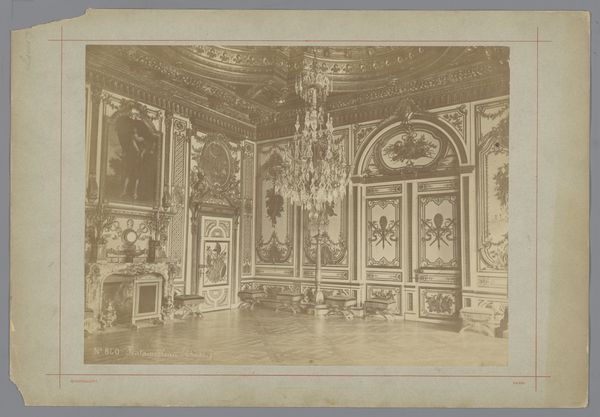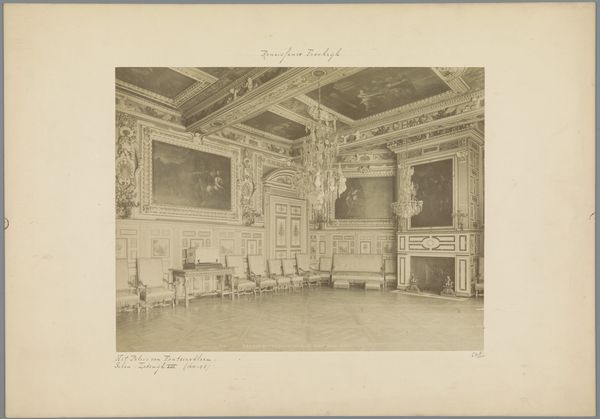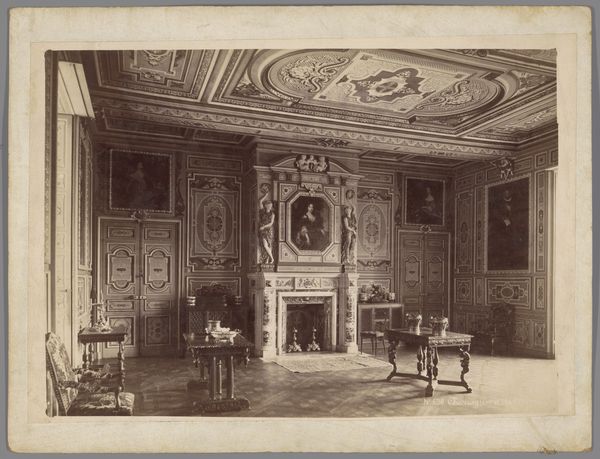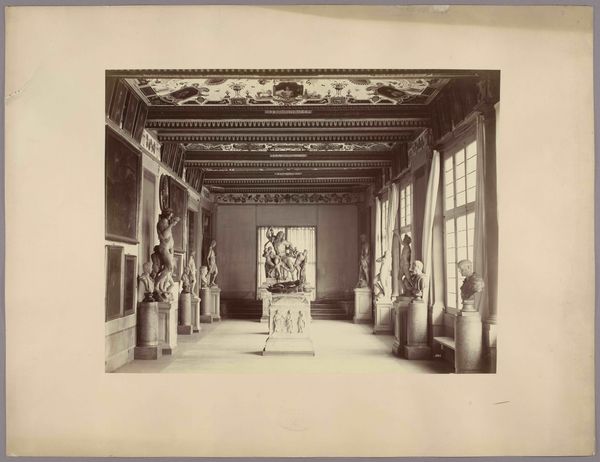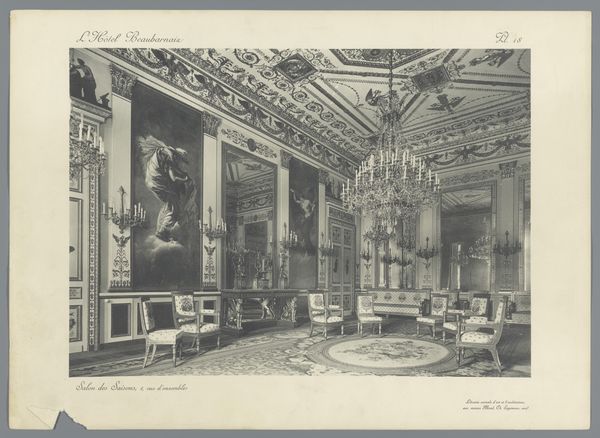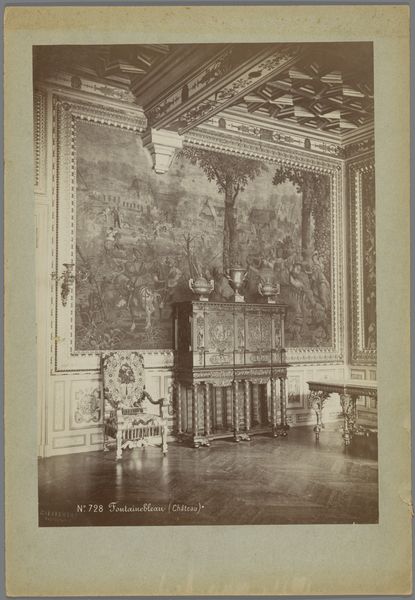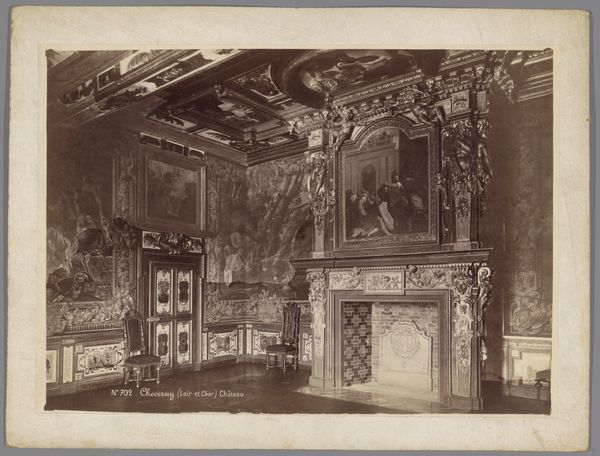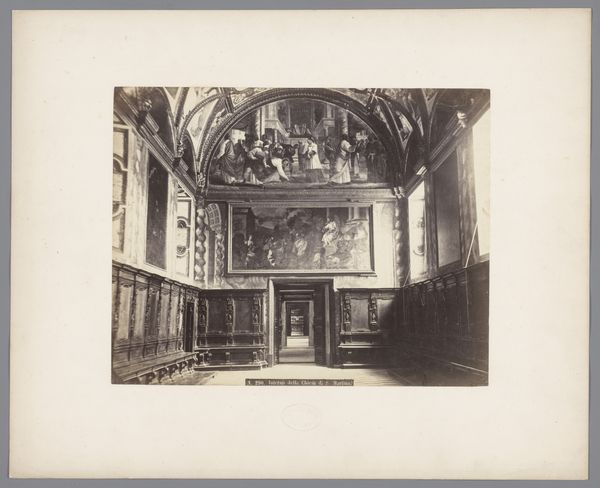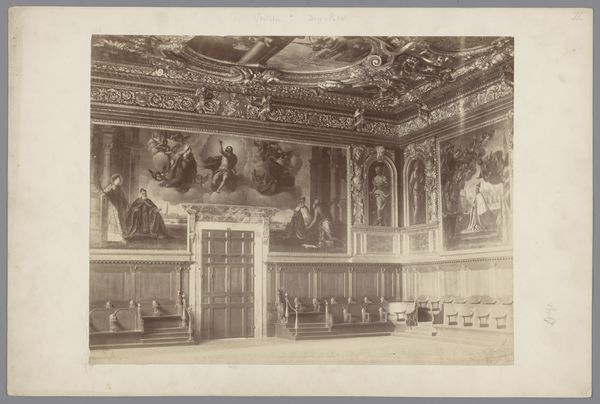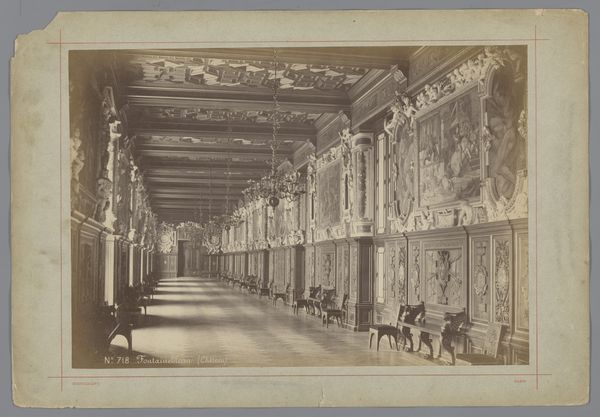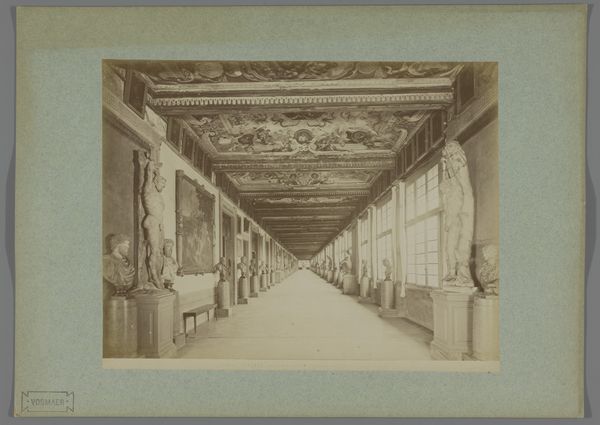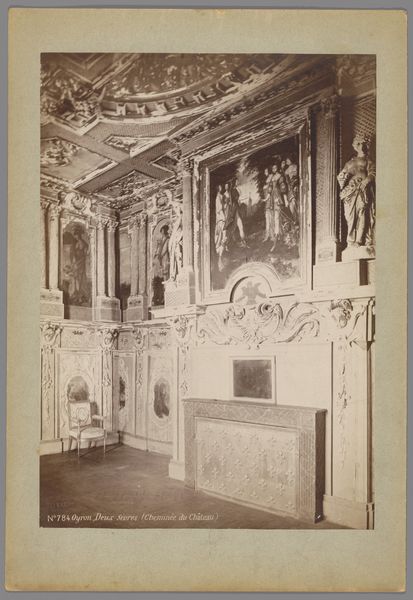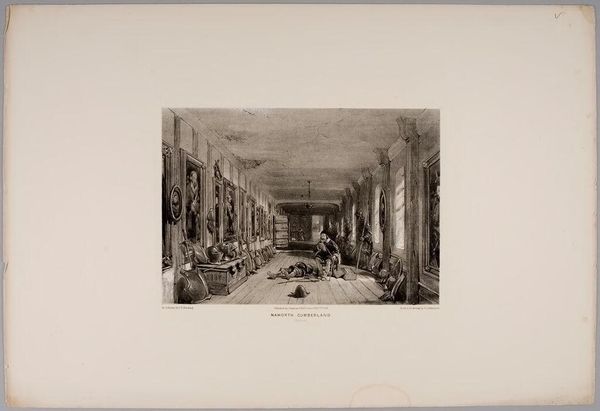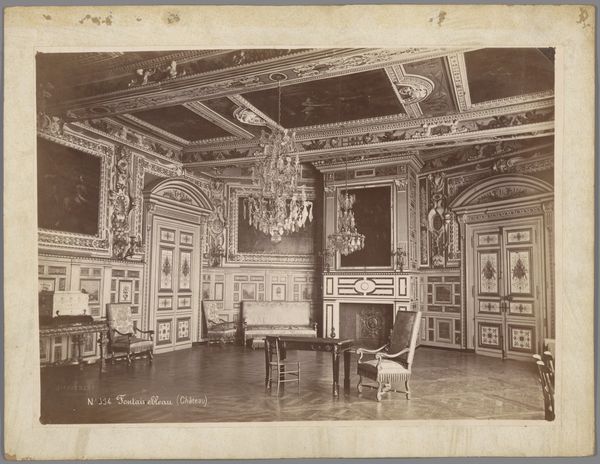
Florence_ R. Galleria Pitti, Interior of the Saturn Room, No. 1375 c. 1880 - 1890
0:00
0:00
albumen-print, paper, photography, albumen-print
#
albumen-print
#
portrait
#
16_19th-century
#
landscape
#
paper
#
photography
#
genre-painting
#
history-painting
#
academic-art
#
italy
#
albumen-print
Copyright: Public Domain
Editor: This photograph, taken by Fratelli Alinari between 1880 and 1890, captures the Interior of the Saturn Room at the Galleria Pitti in Florence. It's an albumen print, and the detail is incredible. The sheer volume of art displayed in this one room is kind of overwhelming. What strikes you when you look at it? Curator: I'm interested in the production of this image itself. An albumen print necessitated a complex, industrial process, highlighting the shift in art consumption and accessibility during this period. Look at the photograph as a commodity – a manufactured representation of elite culture. How does the act of photographing and reproducing the Saturn Room influence its aura and value? Editor: That’s an interesting perspective. I was more focused on what it depicts. Does the photograph enhance or diminish the experience of being in the actual Saturn Room? Curator: Consider the economic implications of photography during the late 19th century. This photograph was likely mass-produced and sold to tourists. In what way is it replicating and democratizing the art world? It’s important to reflect on photography's role in shaping public access to art and the market that grows from these representations. Do you think this process cheapens the experience for those that are fortunate enough to experience the space first-hand? Editor: I guess I hadn't thought about it like that before, but seeing the image as part of a broader system of production and consumption really changes my understanding of it. It shifts the focus from just the art *in* the room to the art market *around* the room. Curator: Exactly! This image acts as more than a depiction, it’s an access point to question production, ownership, and the evolving ways art enters the public sphere. The material conditions surrounding the making and distribution of such a photograph reveal much about art's socio-economic life in the late 19th century.
Comments
No comments
Be the first to comment and join the conversation on the ultimate creative platform.
